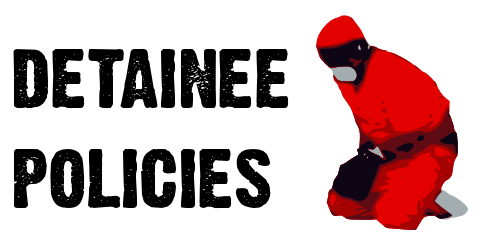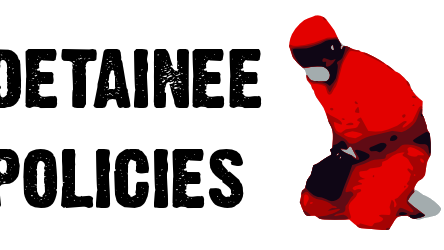US "Systematised Human Rights Abuses": WikiLeaks releases prisoner treatment manual from Guantanamo
Source: rawstory.com

Julian Assange’s WikiLeaks website on Thursday started publishing more than 100 US Department of Defense documents including the first prisoner treatment manual for Guantanamo Bay.
The latest release by the anti-secrecy site comes as Assange, who faces charges of rape and sexual assault in Sweden, remains holed up in the Ecuadoran embassy in London with what Quito says are health problems.
Assange said in a statement that the newly released documents exposed military detention policies at camps in Iraq and at the Guantanamo Bay Naval Base in Cuba following the September 11, 2001 attacks on the United States.
Among the documents is the 2002 manual for staff at Camp Delta at Guantanamo, shortly after it was set up by US President George W. Bush to house alleged Al-Qaeda and Taliban detainees from the “war on terror”.
“This document is of significant historical importance. Guantanamo Bay has become the symbol for systematised human rights abuse in the West with good reason,” said Assange, the founder of the website.

He added: “‘The ‘Detainee Policies’ show the anatomy of the beast that is post-9/11 detention, the carving out of a dark space where law and rights do not apply, where persons can be detained without a trace at the convenience of the US Department of Defense.
“It shows the excesses of the early days of war against an unknown ‘enemy’ and how these policies matured and evolved, ultimately deriving into the permanent state of exception that the United States now finds itself in, a decade later.”
US President Barack Obama vowed within hours of taking office in January 2009 that he would close Guantanamo Bay, saying it was acting as a recruiting tool for Islamist extremists.
But Obama has so far failed to do so in the face of deep opposition in Congress to moving inmates to the US mainland, and several people accused of involvement in the 9/11 plots are on trial at the camp.
WikiLeaks first enraged Washington in 2010 by publishing a flood of secret military files on the wars in Iraq and Afghanistan, as well as a huge cache of diplomatic cables from US embassies across the world.
Assange, 41, walked into the Ecuadoran embassy in London on June 19 seeking asylum in a bid to avoid extradition to Sweden, where he faces questioning over alleged rape and sexual assault.
He was granted asylum on August 16 but Britain has refused to grant him safe passage out of the country, and he remains in the embassy.
Ecuador said on Wednesday it has requested a meeting with Britain to discuss the health of Assange, who it says is losing weight and suffering vision problems.
Article from: rawstory.com






















